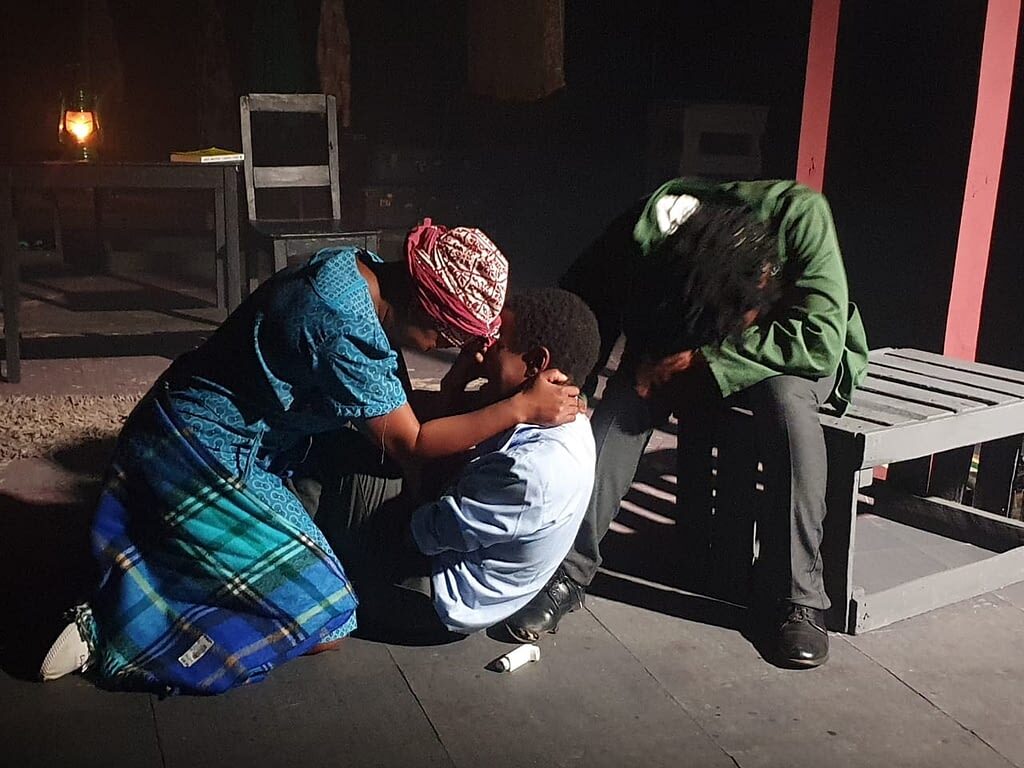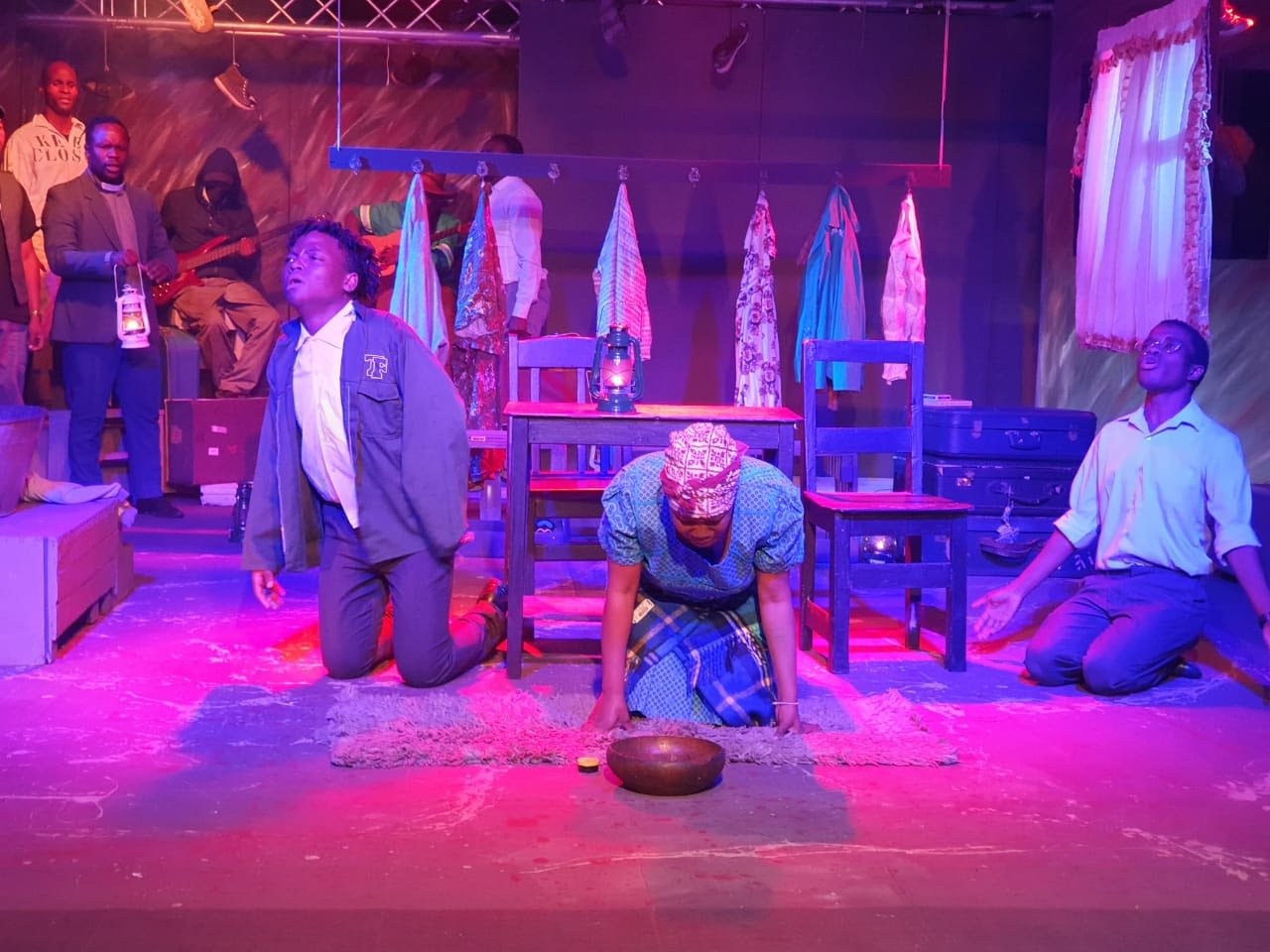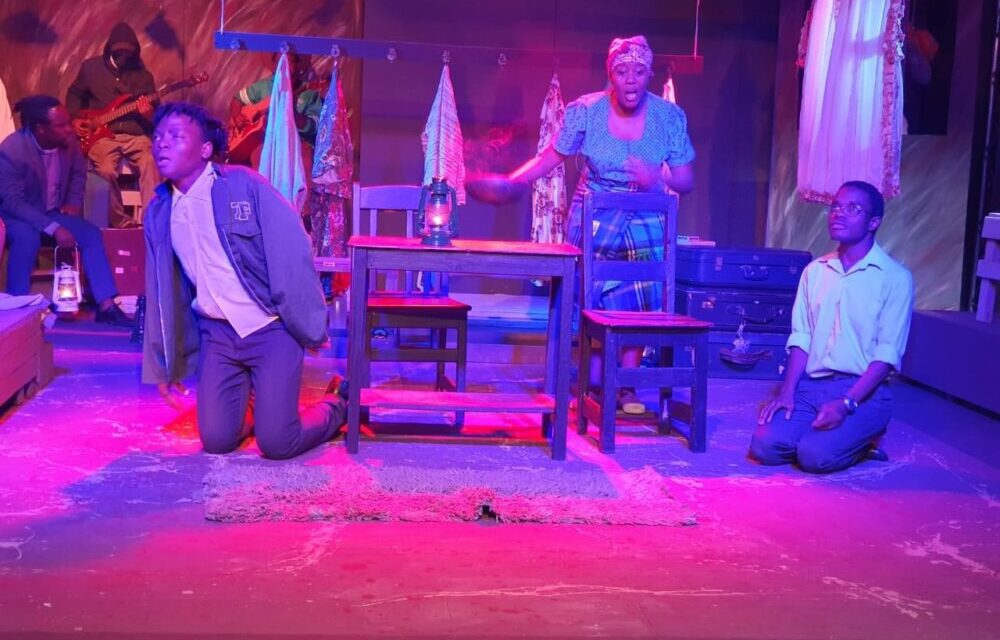These Are Not My Shoes is a story about absent fathers and what happens to young men when they grow up without a father figure. It is a heart-wrenching account of the difficult life young men endure in search of role models and a sense of purpose.
Accompanied by a powerful musical ensemble, this production goes where most do not by placing on stage this very prevalent but often misunderstood issue. The acting is mesmerizing and authentic, to a point that one forgets that this is a play as the actors are faced with one issue after another, and thus are forced to find creative solutions under very difficult circumstances.
These Are Not My Shoes uses the analogy of shoes, who wears them, who fits them and what wearing them means to bring to the fore issues of fatherhood and how the destruction of the family unit when a father is absent negatively affects families.
The play expertly unpacks the complexities of black life, the daily challenges of existence and the heavy toll children pay when parents are having marital problems which often lead to other problems.

These Are Not My Shoes featuring Tshwarelo Selolo, Mongezi Mabunda, Thabang Chauke and Itumeleng Moeketsi. Photos by Nolwazi Mahlangu.
Given how the issue of absent fathers is not a new phenomenon, These Are Not My Shoes < is a theatrical social commentary on the emotional and psychological trauma young men go through in trying ‘to become men’ and attempting to define what all that means without any guidance.
These Are Not My Shoes is thus a cry, a refusal and to some degree a defiance of the hand life has dealt these two young men because of having been forced to fend for themselves, but also be each other’s shoulder to cry on due to the absence of their father.
The reasons for the absence of fathers are varied and complex, from social, economic and sometimes cultural among others, but what cannot be ignored is the heavy price families pay for this and according to statistics these staggering numbers also give rise to a multitude of social ills such as crime, gender-based violence as well as drug and alcohol abuse.
What the production manages to do is present the scenarios as they are without attempting to offer easy solutions – for those simply do not exist. These Are Not My Shoes gives an unfiltered and believable account of the lifelong impact absent fathers have on their families and in this specific instance the two young men who in essence are forced to forego their youth to attend to some of the duties their father would have had he had been present.

These Are Not My Shoes written and directed by Mxolisi Masilela at TX Theatre in Tembisa. (Photos by Nolwazi Mahlangu)
In the final analysis, These Are Not My Shoes is a tragedy, not just of one family but of a community and much more because when fathers are absent it does not only affect the immediate family and the repercussions of that absence are often felt beyond the immediate and most affected family unit.
In offering a glimpse into the life of young men who grow up with absent fathers, These Are Not My Shoes also demonstrates how the issue could become a vicious cycle if steps and mitigating strategies are not taken to ensure that families can stay together – the challenges which necessitate the situation though complex, can be attended to especially if the rest of the community comes together and finds solutions to what is a massive and present reality in many black communities in South Africa and elsewhere.
These Are Not My Shoes was written and directed by Mxolisi Masilela, and featured Tshwarelo Selolo, Mongezi Mabunda, Thabang Chauke and Itumeleng Moeketsi. Musicians were Themba Hlatshwayo, Sibusiso Hlatshwayo, Thulani Zwane, Velile Mkhabela, Muzi Shili, Nkosana Maphanga
Mthobisi Mpandle and Thabiso Modikoe. It was on at the TX Theatre in Tembisa from 8 – 12 September 2021.
This article was originally posted in The African Theatre Magazine on September 25, 2021 and has been reposted with permission. To read the original article, click here.
This post was written by the author in their personal capacity.The opinions expressed in this article are the author’s own and do not reflect the view of The Theatre Times, their staff or collaborators.
This post was written by Tonderai Chiyindiko.
The views expressed here belong to the author and do not necessarily reflect our views and opinions.

















